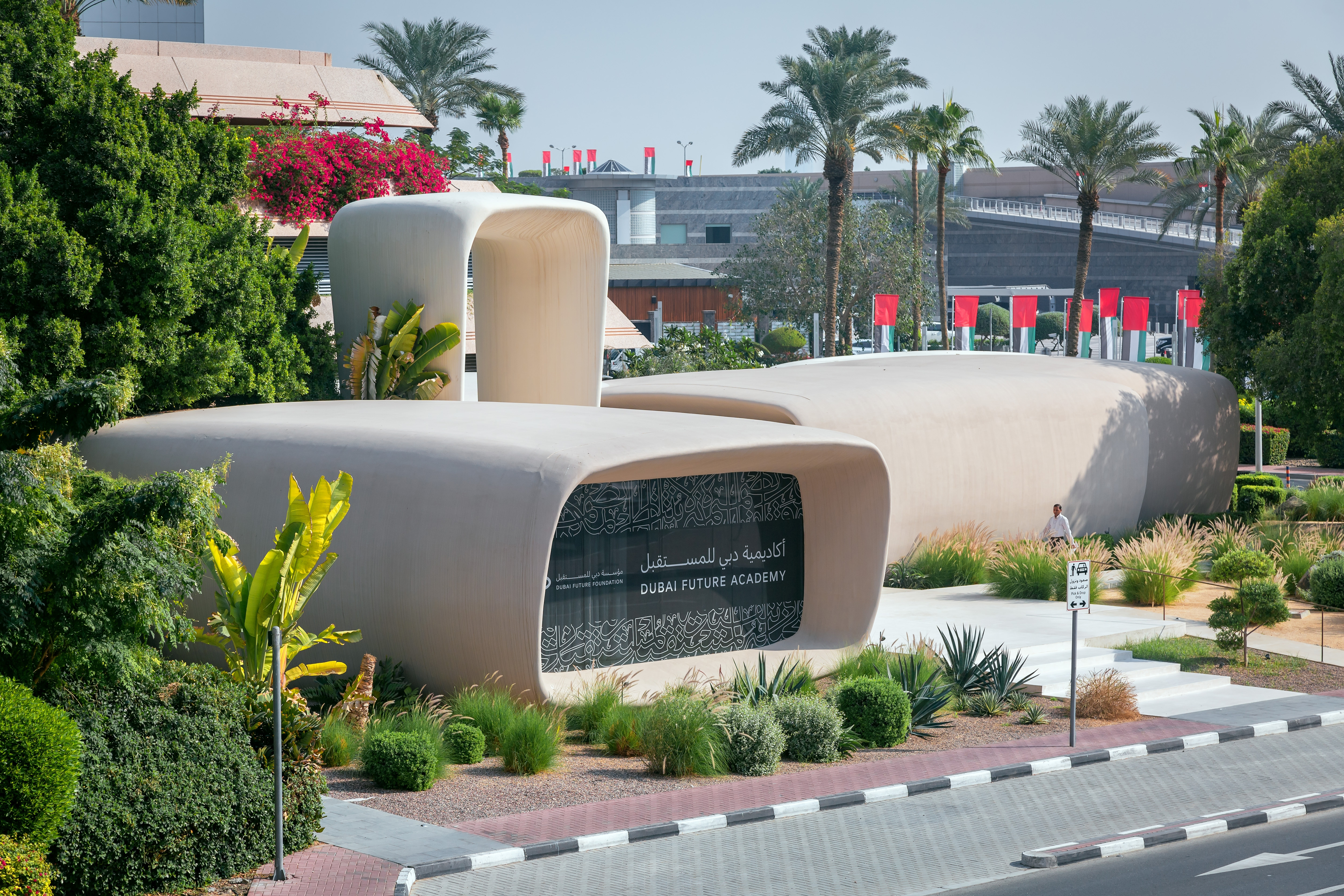Education in Dubai and other emirates is offered through various systems, including British, Canadian, American, Indian, and others. For higher education, the Bologna system is followed. Children of immigrants can enroll in kindergartens and secondary schools on a paid basis, while foreign students have access to higher education programs such as bachelor’s, master’s, and doctoral studies. The UAE is home to three public universities, over thirty branches of leading international universities, and approximately sixty private educational institutions. Education for foreigners in the Emirates is exclusively fee-based, and UAE diplomas are internationally recognized for their quality.
The cost of education in the UAE varies depending on the institution. Tuition fees at public universities are more affordable than those at prestigious institutions like Cambridge or Oxford, yet the quality of education and the expertise of the teaching staff are on par with these renowned universities. Foreign students are eligible for a one-year resident student visa, which can be extended. Exceptional students may qualify for resident status lasting 5 or 10 years.
Advantages of studying in the UAE
Education in Dubai and other emirates offers several compelling benefits for international students:
- English is widely spoken across the UAE, serving as the primary language for communication and permanent residence. It is also the language of instruction in universities, making it accessible for international students.
- Universities and colleges in the UAE maintain world-class education standards, supported by substantial funding and highly qualified teaching staff. This ensures students receive a top-tier academic experience.
- The UAE is home to branches of prestigious institutions such as the Sorbonne, New York University, and the Rochester Institute of Technology. This allows international students to graduate with globally recognized degrees while studying in the UAE.
- Foreign applicants can directly apply to UAE universities operating under the American system or to branches of U.S. institutions immediately after completing 11th grade, without requiring a preparatory year. However, some universities may require a one-year foundation course.
- With a rapidly growing economy and a consistent need for skilled professionals, UAE universities provide excellent career prospects. Internship programs with local companies further enhance opportunities, ensuring graduates can achieve successful employment and build rewarding careers in the UAE.
Education system in the UAE
Education in the Emirates consists of the following stages: preschool, fundamental school (first and second stage), secondary and higher education. In terms of the quality of primary and higher education, the United Arab Emirates is in the top 20 of the world ranking.
For students with high academic performance, the UAE practices various scholarship programs and study grants established by public and private organizations. The scholarships available to the citizens of the country are listed in the table below.
| Organization | Field of study for which the scholarship is awarded |
|---|---|
| Information and Communications Technology Foundation | IT, telecommunications |
| Department of Education | Pedagogy, Science, Transportation, Technology, Food Quality Control |
| Ministry of Finance | Accounting, Auditing, Credit, Banking |
| Mohammed bin Rashid Space Center | Engineering, Science |
| UAE Atomic Energy Corporation (ENEC) | Physics, Nuclear Engineering |
| Khalifa University, Ministry of Education | Pedagogy, Mathematics, Chemistry, Statistics |
Several higher education institutions in the country offer scholarships to foreigners on condition of high academic performance. For example, the United Arab Emirates University (United Arab Emirates University) provides full reimbursement of tuition fees to students under the program “Full Tuition Scholarship”. An applicant for the scholarship should score at least 680 points on the SAT math test or 1,500 points on the EmSAT, pass the IELTS English language exam at a level not lower than 7. The student must also maintain a grade point average of 3.8 or higher throughout the entire period of study. Partial scholarships covering up to 50% of the cost of an academic year are also practiced by the university.
Preschool and school education in the UAE
The education and development of children from birth to grade 4 fall under the jurisdiction of the UAE Federal Authority for Preschool Education. The country offers both public and private kindergarten options, with a strong emphasis on ensuring the safety of preschools, protecting children’s health, and fostering their holistic development. Alongside core subjects, programs may include music, fine arts, vocal training, and other enriching activities.
For children aged 45 days to 4 years, registering at a preschool does not require contacting the Department of Education. Each kindergarten sets its own rules, requirements, and fees for enrollment. Typically, parents must provide a birth certificate, their identification, and a completed registration form when applying.
The UAE’s educational system is regulated by the Ministry of Education and the federal organization Emirates School Establishment (ESE). To enroll children of UAE citizens in a school or kindergarten, parents must provide documents such as the child’s birth certificate, proof of residence (e.g., lease agreement, property ownership, or utility bills), and their identification.

For immigrant children, education in both private and public institutions is only available on a fee-paying basis. Additionally, the number of immigrant students in each class or school cannot exceed 20%. A key requirement is that the parents must hold UAE residency and be employed in the country. Foreigners seeking school admission must complete several steps:
- Choosing a school based on factors such as rating, cost, location, and language of instruction.
- Preparing the required enrollment documents.
- Paying tuition fees and completing the registration process.
Applications for admission are submitted online through the electronic services portal. The basic documents required for enrollment include:
- The student’s report card from the previous academic year (if applicable).
- Letters from the parents’ employers confirming their employment.Proof of residence in the UAE.
- Proof of residence in the UAE.
Proof of residence in the UAE.
Get a consultation
Secondary education in the UAE
Secondary education in the UAE spans 12 years. Students initially begin in a general academic stream. After completing 8th grade, they can choose to pursue a vocational track, and after 9th grade, they may opt for an extended academic stream or remain in the general stream. There is also an elite stream available, starting from 6th grade and continuing through 12th grade. Each stream differs in its curriculum focus. The extended stream emphasizes an in-depth study of mathematics and science, preparing students for advanced academic pursuits. The vocational stream is designed for students interested in technical specialties, with a focus on developing practical skills. The elite stream caters to students with exceptional academic performance, emphasizing analytical thinking and problem-solving skills. Upon completing 12 years of secondary education, students receive a certificate of secondary education, which qualifies them for admission to higher education institutions.
Higher education in the UAE
Approximately 70% of universities in the UAE are concentrated in the emirates of Dubai and Abu Dhabi. As of 2023, the country hosts around 100 universities, including three public institutions. The higher education system in the UAE offers three levels of degrees: a bachelor’s degree (typically 3-4 years), a master’s degree (1-2 years), and a doctoral degree (3-5 years). The duration of study varies depending on the field. For example, medical programs require a minimum of six years, pilot training takes 1.5 to 3.5 years, and accounting programs last 3-4 years. Both public and private universities accept international students on a fee-paying basis. Admission requirements include proficiency in English, demonstrated by passing an international language exam such as IELTS (International English Language Testing System) or TOEFL (Test of English as a Foreign Language). Some universities may also require EmSAT (Emirates Standardized Test) scores in key subjects.
How much it costs to study in Dubai and other emirates
| Emirate | Cost of tuition for one academic year, $ | |
|---|---|---|
| School | University | |
| Abu Dhabi | 2 700–20 000 | 9 000–23 000 |
| Dubai | 6 000–22 000 | 7 500–28 000 |
| Ajman | 2 500–4 000 | От 20 000 |
| Sharjah | 2 000–4 000 | 12 000–27 000 |
| Ras al-Khaimah | 3 000–4 500 | From 10 000 |
Is it possible to get free education in the UAE
Free education in the Emirates is available only to citizens of the country in public educational institutions. Education in private schools, colleges and universities is paid by both natives and immigrants. However, foreign students are entitled to apply for scholarships in case of high academic performance.
Top UAE universities for international students
When selecting a university in the UAE, international applicants typically consider the following factors:
- Language of instruction
- Cost of annual tuition fees
- Campus living conditions
- Opportunities for internships and part-time work
- Job market demand
The ranking of the best universities in UAE is given in the table below.
| Higher education institution | Main specializations |
|---|---|
| Khalifa University | Natural sciences, computer technologies, energy, engineering, transportation and logistics |
| United Arab Emirates University | Medicine, engineering, mathematics, social sciences, business and economics |
| American University of Sharjah | Engineering, IT, natural sciences, sociology, finance, arts |
| University of Sharjah | Computer science, medicine and health, engineering and humanities |
| Zayed University | Pedagogy, computer technology, natural sciences |
How to apply to a university in the UAE
To pursue higher education in the UAE, applicants should follow this step-by-step process:
- Choosing a university.
Research private and public universities in the UAE, focusing on rankings, reviews, admission requirements, and available specializations. Assess tuition fees in Dubai and other emirates, contact the university administration for details on campus accommodation, and evaluate future prospects.
- Language testing.
Prepare for and pass an international English language proficiency test, such as TOEFL or IELTS, and obtain the required certificate. Ensure your English level meets the minimum standards set by your chosen university.
- Preparing documents.
Gather all necessary documents for submission to the university’s admissions committee. This may include a motivation letter in English. High school certificates must be authenticated by the UAE Embassy, the Ministry of Education, and the Ministry of Foreign Affairs in your home country and translated into English or Arabic. Afterward, apply for a UAE equivalency certificate via the official government e-services portal. The cost and processing time for obtaining a UAE equivalency certificate vary depending on the level of education. For a high school equivalency certificate, the fee is $13.50 USD, with a processing time ranging from 3 to 30 working days. Applicants seeking equivalency for a bachelor’s degree to pursue master’s or doctoral studies in the UAE can expect a fee of $27 USD for a bachelor’s equivalency certificate, while the cost for a master’s equivalency certificate is $40 USD.
- Applying for admission.
UAE universities accept applications twice a year: spring (March-April) and fall (September-October). Submit your application through the official website of the chosen university. Processing times vary depending on the institution.
- Enrollment in courses.
Once your application is approved, you will receive a notification from the university. Proceed to pay the tuition fee for your first academic year.
- Obtaining a student visa.
Using the enrollment confirmation letter from the university, apply for a student visa through the UAE Consulate in your home country. The visa is valid for 12 months and can be renewed annually for the duration of your studies.
Opportunities for work and immigration while studying in the UAE
Student visa holders in the UAE are permitted to take on internships with private and public companies, as well as part-time work, provided they have the university’s approval. The Ministry of Human Resources and Emiratization (MoHRE) issues work permits to eligible candidates free of charge, enabling them to gain valuable experience while studying.
The UAE student resident visa also serves as a residence permit. High school students with a minimum score of 95% can apply for a five-year residency. For those with exceptional academic performance, a 10-year Golden Visa is available, provided the university is rated as Class A or B by the Ministry of Education. To qualify, applicants must have a cumulative grade point average of at least 3.5 for Class A universities or 3.8 for Class B universities. After graduation, students can transition to full residency status based on employment, allowing them to remain and work in the UAE.
Feedback from International Students on Studying in the UAE
Before pursuing education in Dubai or other emirates, prospective international students are encouraged to review feedback from those already enrolled in UAE universities and explore various aspects of the educational experience. Students who have gone through the admission process often highlight the straightforward application procedure, the efficiency in processing documents, and the prompt responses from university administrations. Many are impressed by the state-of-the-art facilities, including well-equipped laboratories, extensive libraries, modern infrastructure, and the overall comfort of campus living.
The vibrant and welcoming atmosphere, the professionalism of the faculty, and the diverse, multinational student body are frequently praised by students. Many also value the unique opportunity to intern with leading international companies, viewing it as a steppingstone to securing reputable employment after graduation.
One of the most significant advantages noted by students is the presence of branches of renowned British, American, and European universities in the UAE. These institutions offer cutting-edge programs in high-demand fields, ensuring that graduates not only secure employment within the UAE but also have excellent career prospects internationally.

















